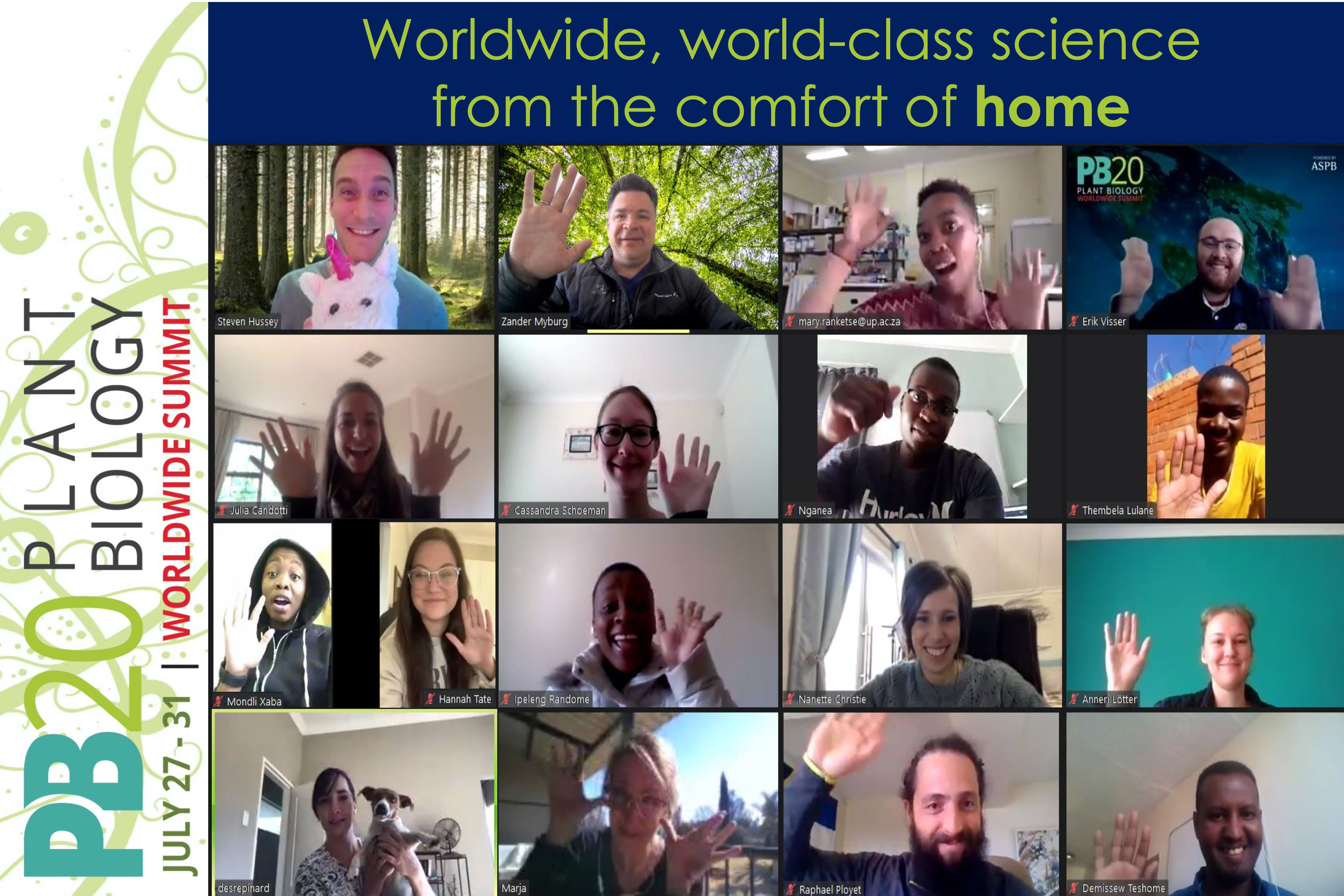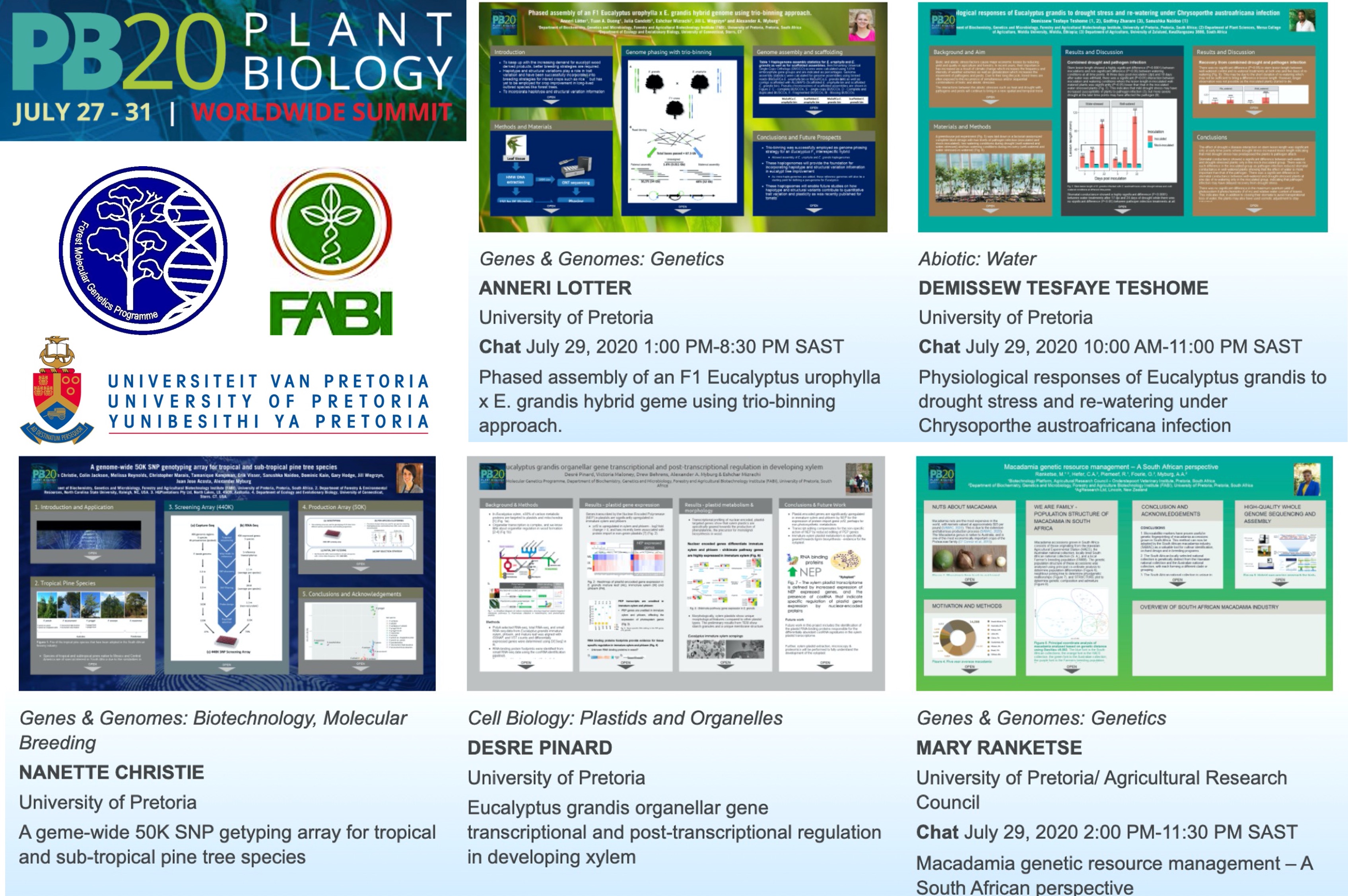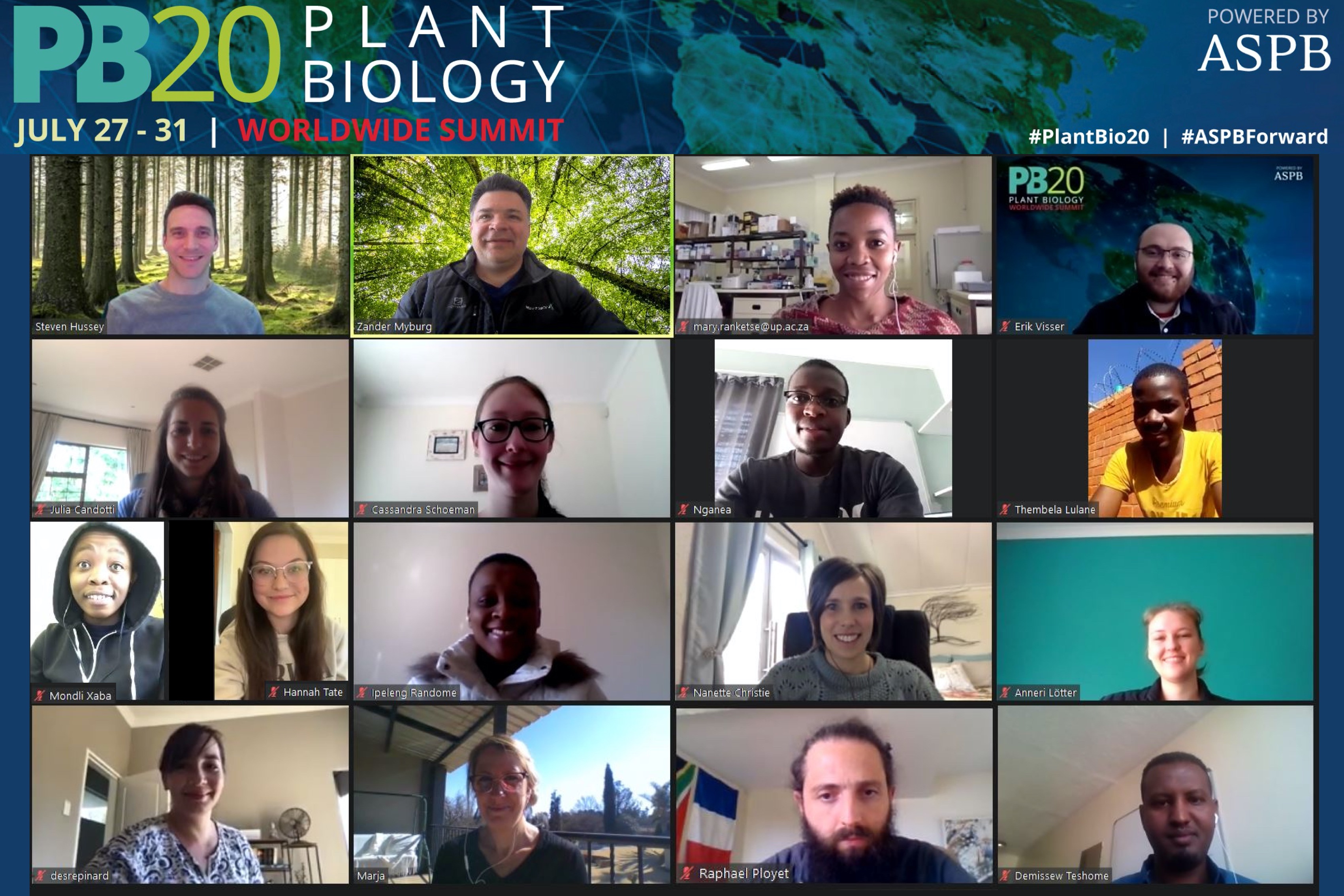FMG members attend a virtual PB20 conference 2020-08-11
Normally, attending the prestigious Plant Biology Worldwide Summit, hosted by the American Society of Plant Biologists (ASPB) would be an impossible dream for an Honours student in South Africa. However, this year’s Plant Biology Worldwide Summit 2020 (PB20) hosted from 27-31 July, was attended by one intern and two Honours students from the Forest Molecular Genetics (FMG) research program in FABI, thanks to one positive outcome of the COVID-19 pandemic - the move of conferences to an online format. They were joined by an additional six MSc and six PhD students, five postdoctoral Fellows and two PIs who were all treated to a showcase of the best plant science research in the world supported by cutting-edge technologies. A wide range of topics were covered including phenomics, computational plant biology, epigenetics, and plant-microbe interactions. A benefit of attending international conferences are the informal personal interactions, and the organizers of PB20 did not ignore this important aspect by hosting a number of virtual workshops and networking events covering topics such as career paths, science leadership and policy, mathematical modeling and CRISPR editing. In addition to attending the scientific talks and participating in the workshops, FMG members presented five virtual posters, which could include interactive media and additional data, greatly enhancing the poster-viewing experience for all.
Some major themes that emerged from the conference that will no doubt shape the future of plant biology are the importance of accurate phenotyping and the emerging technologies that will facilitate this, single-cell sequencing techniques that allow researchers to untangle the complex gene regulatory networks underlying plant phenotypes, and new applications for CRISPR editing in plants. The Plantae page for PB20 will share summaries and notes from the conference.
In a time where the worldwide focus is on inclusivity and diversity, we hope that virtual conference attendance will become a part of our “new normal”. Exposure to world-class research enriches everyone who has the privilege of attending international conferences, and virtual conferences are an excellent way to ensure that funding does not preclude anyone from this experience.




